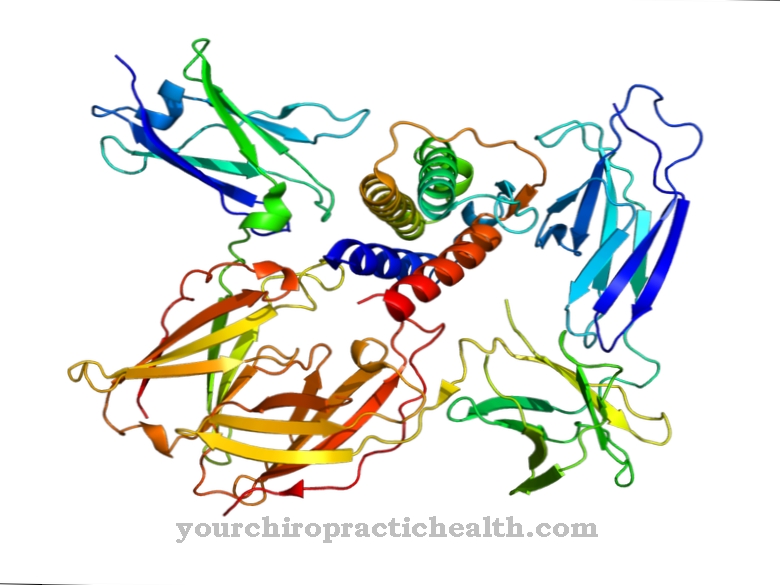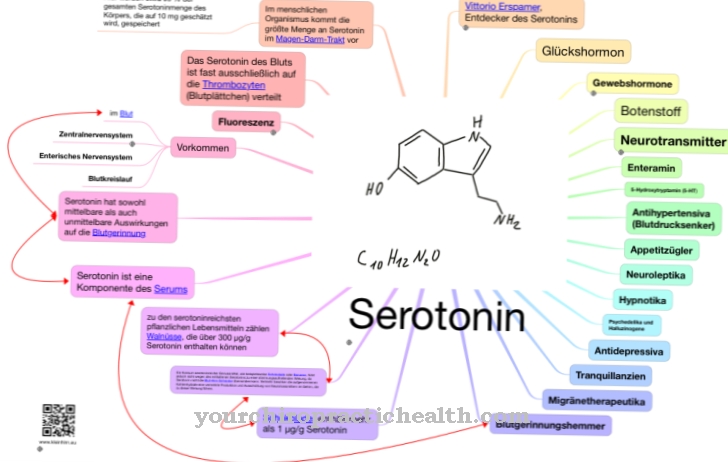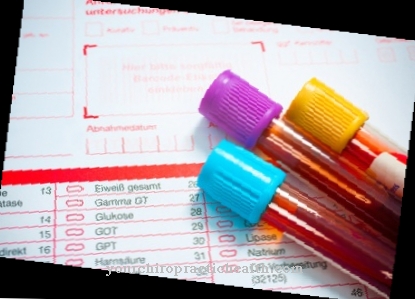Prolactin (PRL) is a hormone that is produced in the lactotropic cells in the anterior pituitary gland. It is especially important during pregnancy and while breastfeeding. Various diseases can be related to prolactin.
What is prolactin?

A hormone that is formed in the anterior pituitary and fulfills a wide variety of purposes is called prolactin or lactotropic hormone. It consists of 199 amino acids and is found in all mammals.
Depending on the type, the number of amino acids can vary. Prolactin is inhibited by the body's own substances such as gamma-aminobutyric acid and somatostatin. A lack of estrogens also affects prolactin production.
Production, Education & Manufacturing
The production of prolactin is precisely regulated by the hypothalamus. It is produced in the pituitary gland and from there passed on to the mammary gland and other areas. There it enables various physical changes and stimulates the production of breast milk.
The exact formation of the hormone is a complex process. The anterior pituitary gland produces six different hormones, which enable stressful situations, growth and, ultimately, the production of breast milk. However, the production of prolactin does not take place directly in the pituitary gland. Rather, the two hormones vasopressin and oxytocin are released, which are responsible for the corresponding processes.
Oxytocin is responsible for allowing breast milk to be dispensed. It arises from the precursor protein oxytocin-neurphysin through the separation of peptide bonds. The proprotein convertase 1 initiates this process.
The body also precisely regulates the amount of hormones produced. It increases with the beginning of pregnancy, but can be influenced by a strong desire to have children. Benign prolactinomas can also produce prolactin autonomously as a cell composite. Prolactinomas are cysts or otherwise altered tissue that mimics the production of hormones. This creates an imbalance and overproduction occurs.
Function, effect & properties
Among other things, prolactin is responsible for stimulating the growth of the mammary gland during pregnancy. It also enables milk to be produced while breastfeeding and suppresses ovulation.
This is done by inhibiting the release of the necessary sex hormones. So prolactin prevents pregnancy while breastfeeding, and this is not the only function of the hormone. The so-called brood care behavior is triggered in connection with the birth of the child. Colloquially, this is understood as the care of the parents for their offspring. However, the prolactin level does not only increase in the mother for this purpose. The partner also normally has a higher prolactin level.
So prolactin doesn't just have physical effects. Psychologically, too, increased production brings some changes with it. Accordingly, a large excess can lead to far-reaching complaints. If too little prolactin is produced during breastfeeding, this is also a risk factor.
Illnesses, ailments & disorders
Prolactin can trigger various complaints if there is an over- or under-production. This leads to the women stopping their menstrual period and experiencing sexual displeasure. An uncontrolled flow of milk from the mammary gland can also be the result of overproduction.
The reason for this is the increased milk production due to an excess of prolactin. Men suffer from poor potency, are also affected by sexual aversion and can suffer from psychological problems. The reason for the overproduction is usually a tumor. This mimics the hormonal tissue and produces prolactin and other hormones. If this happens, it is called an adenoma. The overproduction can be stopped by surgical removal of the tumor or treatment with medication. Preparations such as Dostinex® have proven to be particularly effective. These are dopamine agonists that can break down tumors and cysts.
A wide variety of faults can also occur in the event of underproduction. Most often there are metabolic disorders and a reduced need for care for the infant. The production of milk can also be restricted, although this can also have various other causes. In addition, if there is a lack of prolactin, those affected feel sexual aversion and suffer from hair loss.
A prolactin deficiency can also affect children. However, they do not show any symptoms as production is not yet a major concern. Only breast growth can occur prematurely in some cases. Puberty is also delayed, but this rarely leads to problems. Women in particular are affected by major complaints. If they have a prolactin deficiency, they can suffer from fertility disorders.
Prolactin deficiency is very rare and can be treated by adding the necessary substances. If the defect is due to damage to the pituitary gland, surgical intervention may be necessary. Such an intervention is risky, however.



.jpg)























